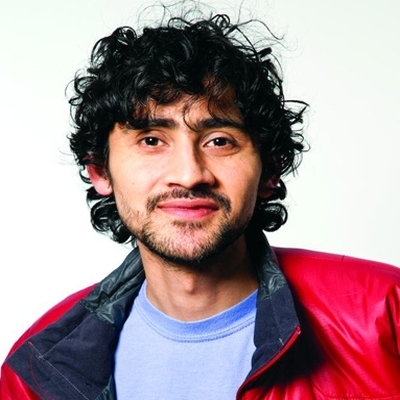
Dr. Manu Prakash
(BT/CSE/2002)
A biophysicist of repute in the contemporary world, Dr. Manu Prakash is an assistant professor of bioengineering at Stanford University, USA. Born and raised in Meerut, India, Dr. Prakash finished B.Tech. in Computer Science from IIT Kanpur in 2002. Soon after, he joined Ph.D. in Media Arts and Sciences at Massachusetts Institute of Technology, MA, USA, and graduated in 2008.
Profile
Dr. Prakash runs a laboratory devoted to projects as varied as economical paper microscopes, water computers and biophysics. He recently discovered the remarkable physics of a lily pad beetle for pure scientific curiosity. He described the research as "just good old natural history," with a large dose of physics.

Endowed with broad interests, Dr. Prakash and his students have developed a computer that operates using water droplets. Their goal is to design a new class of computers that can precisely control and manipulate physical matter. Because of its universal nature, the droplet computer can theoretically perform any operation that a conventional electronic computer can crunch although at significantly slower rates.
Dr. Prakash had earlier shocked the scientific community by developing a pocket-size paper microscope which he has named as "Foldscope" - a printable, use-and-throw microscope made almost entirely from a sheet of paper and is powerful enough to detect a malaria parasite in a drop of blood, yet costs just 50 cents. By using parts from a music box, Dr. Prakash has created a device that can be programmed to mix precise amounts of chemical fluids in a way that is useful for both students and researchers. The design relies on metal pins that pass through punch card paper in order to release chemicals from individual channels. His prototype can be recreated for just $5.

Dr. Prakash is best known for his pioneering work in inventing high-tech tools using inexpensive materials - an endeavor he calls 'frugal science'. His inventions may have been designed to address complicated problems, but their low cost and simple designs make them accessible to everyone.
Achievements and Honors
- Humanitarian Award for Contributions in Science, Technology and Robotics, Rotary International (2020)
- Unilever Colworth Prize, Microbiology Society (2020)
- Recipient of Young Alumnus Award, 2019 by IIT Kanpur.
- The Creative Class of 2019, Newsweek (2019)
- Town & Country's 50, Town & Country Magazine (2018)
- Design of the Year Award (Paperfuge), Beazley (2018)
- 25 People Shaping the Future, Rolling Stone Magazine (2017)
- Chan Zuckerberg BioHub Investigator, Chan Zuckerberg BioHub (2017)
- INDEX Design Award, INDEX (2017)
- NSF "Vizzies" Experts' Choice Award, Popular Science (2017)
- Tau Beta Pi Teaching Award, Tau Beta Pi (2017)
- WIRED's Next List, WIRED (2017)
- HHMI-Gates Faculty Scholar, HHMI (2016-2021)
